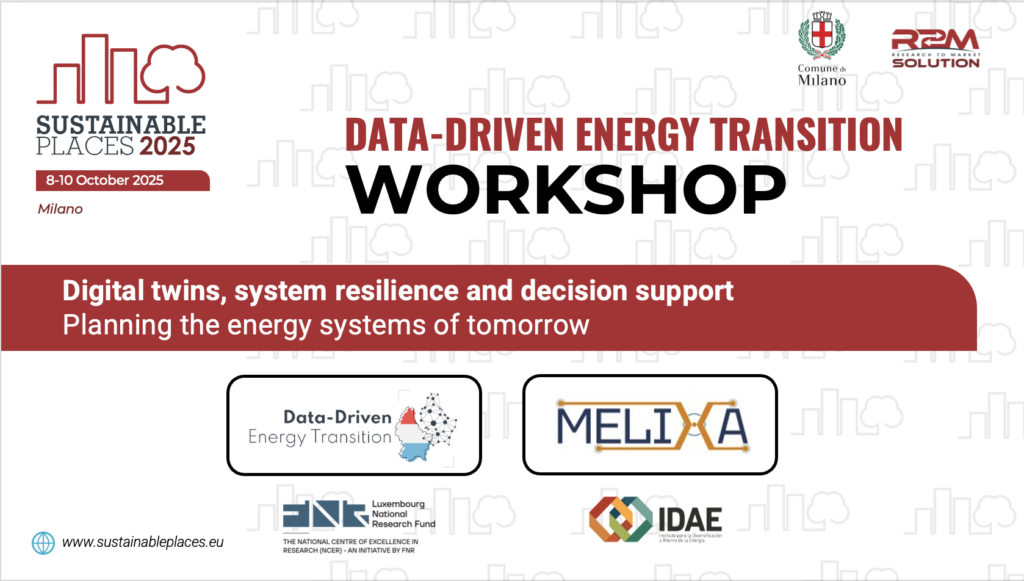Data-driven energy transition: Digital twins, system resilience, and decision support for planning the energy systems of tomorrow

Europe’s energy transition is gathering pace, but so too is the complexity of the systems we must design, operate, and govern. With growing interdependencies across energy carriers — electricity, heat, gas, hydrogen — alongside increasing decentralisation, digitalisation, and citizen engagement, energy planning has become a multi-dimensional challenge. Infrastructure decisions must now be informed not only by technical and economic considerations, but also by their implications for markets, regulation, environmental goals, and social acceptance.
This workshop will explore how data-driven approaches, and in particular the use of digital twins, can support better planning and decision-making in this complex context. It brings together European and national research and innovation initiatives that are developing digital platforms, advanced analytics, and interoperable modelling frameworks to help anticipate, simulate, and evaluate future energy system scenarios. By integrating real-time and historical data with predictive models, these tools provide strategic and operational support for actors navigating the transition, helping them assess infrastructure options, coordinate across carriers, and manage uncertainty.
The session will also highlight how digitalisation contributes to improving the resilience and reliability of energy networks, especially in the face of cyber-physical threats and increasing interconnection. Digital twins, in particular, are being developed not only to plan system evolution but also to enhance situational awareness and support real-time response to disruptions. These efforts are often linked to broader goals of improving grid security, enabling cross-border cooperation, and facilitating energy system restoration.
In parallel, the workshop will examine the role of flexibility and decentralised resources in system optimisation. As new digital tools emerge to support prosumer participation, demand response, and market integration, questions of system coordination, regulatory readiness, and user engagement come to the forefront. Projects working on energy data spaces, user-centric platforms, and social co-creation are therefore an essential part of this evolving landscape.
By bringing together diverse perspectives — from infrastructure operators and market actors to researchers and public authorities — the workshop aims to build a shared understanding of the role of digital technologies in guiding Europe’s energy transition. It will provide insights into how planning processes are being reshaped by data and modelling, how resilience is being embedded into digital tools, and how future-oriented decisions can be made more transparent, inclusive, and robust.
